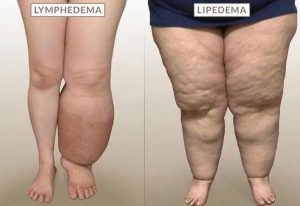 Lipedema is a medical condition that affects the legs, arms, and trunk. It’s a chronic condition caused by abnormal fat deposits that can’t be removed through diet or exercise alone. Liposuction is the most common surgical treatment for lipedema, and it can help to reduce the fat deposits and improve the appearance of the affected areas. If you’re considering having liposuction surgery to treat your lipedema, you may be wondering how soon you can return to work afterwards. Plastic surgeon Dr. Paul McCluskey performs lipedema surgery to patients in Atlanta, Marietta, Georgia, and surrounding locations.
Lipedema is a medical condition that affects the legs, arms, and trunk. It’s a chronic condition caused by abnormal fat deposits that can’t be removed through diet or exercise alone. Liposuction is the most common surgical treatment for lipedema, and it can help to reduce the fat deposits and improve the appearance of the affected areas. If you’re considering having liposuction surgery to treat your lipedema, you may be wondering how soon you can return to work afterwards. Plastic surgeon Dr. Paul McCluskey performs lipedema surgery to patients in Atlanta, Marietta, Georgia, and surrounding locations.
Understanding Lipedema Surgery
Lipedema surgery is a procedure performed by a plastic surgeon to remove excess fat deposits that are resistant to diet and exercise. It is often done to improve the appearance and alleviate symptoms associated with lipedema, a chronic condition that causes an abnormal accumulation of fat in certain areas of the body. The surgery involves the removal of the fat through techniques such as liposuction or tumescent liposuction. The goal is to achieve a more proportionate and symmetrical body shape, leading to increased self-confidence and a better quality of life.
Postoperative Recovery
After undergoing lipedema surgery, a crucial phase is the postoperative recovery. This period typically involves wearing compression garments, taking pain medication, and allowing your body to heal. The length of recovery can vary from person to person, with most individuals able to resume light activities within a week or two. However, it is important to consult with your plastic surgeon for personalized advice and to ensure that you are fully healed before returning to work. They will evaluate your progress and provide recommendations based on your specific circumstances. Remember, a proper recovery is essential for the best long-term results.
Factors Affecting the Return to Work
There are several factors that can affect the timeline for returning to work after lipedema surgery. The extent of the procedure and the areas treated can play a role in recovery time. Additionally, the individual’s overall health and healing ability can impact their ability to resume work. The type of work they do is also a consideration, as physically demanding jobs may require a longer recovery period. Lastly, the surgeon’s recommendations and postoperative care instructions should be followed closely to ensure a safe and successful return to work.
When is it Safe to Go Back to Work?
The timeline for returning to work after lipedema surgery varies for each individual and depends on various factors. Generally, most patients can resume non-strenuous work within a week or two after the procedure. However, it is essential to listen to your body and consult with your surgeon for personalized advice. Factors such as the extent of the surgery, your overall health, and the physical demands of your job will impact the timing. It’s crucial to prioritize your recovery and allow your body ample time to heal before returning to work.
Contact Marietta, Georgia Plastic Surgeon Dr. Paul McCluskey at the Plastic Surgery Institute of Atlanta for a Consultation
For more information on procedures and treatments offered by Plastic Surgeon, Dr. Paul McCluskey and the Plastic Surgery Institute of Atlanta, visit:
Serving patients in and around Marietta, Atlanta, Roswell, Sandy Springs, Alpharetta, Buckhead, Morningside/Lenox Park, Virginia-Highland, Candler Park, Midtown, Inman Park, Poncey-Highland, Ormewood Park, Georgia and other surrounding areas.










Book Now: (404) 255-3555